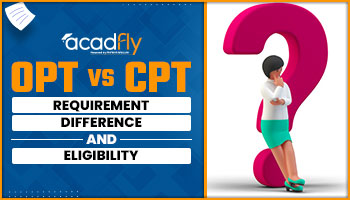

When dealing with education loan early repayment, borrowers often encounter charges or penalties, which can be confusing. Education loan early repayment refers to paying off your loan before the scheduled end date, and while this might seem advantageous, many lenders impose fees for early repayment. These charges are usually in place to compensate lenders for the loss of anticipated interest income. Understanding why you are charged for early repayment can help you make more informed decisions and manage your loan more effectively.
How Education Loan Repayment Works
Understanding how education loan repayment works is essential for managing your finances effectively. Education loan early repayment allows borrowers to pay off their loans ahead of schedule, potentially saving on interest. Typically, repayments start after a grace period following graduation, during which you make regular monthly payments covering both the principal and interest. Education loan early repayment can reduce the total interest burden, but it's important to review the lender's terms to avoid early repayment penalties.
Properly managing your repayment schedule and understanding the rules of your loan can help ensure a smooth process. If considering early repayment, check with your lender to understand any associated fees or conditions, as these can impact the overall benefit of repaying your education loan early.
How Lenders Calculate Early Repayment Penalties
When considering paying off your education loan early, it's essential to understand how lenders calculate early repayment penalties. These penalties can affect your decision to repay your loan ahead of schedule and influence your overall financial planning. Here’s a detailed look into the process:
Understanding Penalty Calculation
Lenders calculate early repayment penalties based on the outstanding principal amount and the interest that would have been accrued if the loan had continued for its full term. This calculation aligns with education loan repayment rules, which vary among lenders.
Methods of Calculation
The penalty for education loan early repayment can be calculated using different methods, such as a flat fee or a percentage of the remaining balance. It’s important to understand these methods, as they affect the total cost of early repayment.
Reviewing Loan Agreements
When you ask yourself, "Can I repay my education loan early?" or "Can I pay my education loan early?", reviewing the loan agreement is crucial. It will provide detailed information about any penalties or restrictions associated with early repayment.
Impact of Early Repayment
Understanding how education loan repayment works and the potential impact of early repayment is essential. Early repayment can sometimes lead to penalties that outweigh the benefits of paying off the loan sooner.
Inquiring with Lenders
If you're considering student loan early payoff, contact your lender to get precise details about the early repayment penalties and how they are calculated. This will help you make an informed decision and plan your finances effectively.
Reasons Behind Early Repayment Charges for Education Loans
Education loan early repayment can be financially beneficial, but many borrowers face early repayment charges. Understanding these charges helps in making informed decisions about repaying your education loan ahead of schedule. Here’s a detailed look at why such charges may apply:
Lender’s Interest Loss
One of the primary reasons for early repayment charges is the lender’s potential loss of interest income. When you repay your education loan early, the lender loses the future interest payments they would have received over the original term of the loan. This loss is often compensated through early repayment penalties.
Prepayment Penalty Clauses
Education loan repayment rules frequently include prepayment penalty clauses. These clauses are designed to protect lenders from financial losses that could arise if borrowers pay off their loans earlier than expected. The penalties are calculated based on the remaining balance or the interest that would have been paid.
Operational Costs
Lenders incur operational costs related to loan servicing, including administrative expenses for processing repayments. Early repayment can disrupt the amortization schedule and recovery of these costs, leading to charges.
Impact on Loan Pricing
Can I repay my education loan early? Early repayments can affect how education loans are priced and structured. To mitigate this, lenders may impose charges to maintain the profitability of their loan products.
Regulatory and Contractual Reasons
Sometimes, early repayment charges are included as part of the loan agreement to comply with regulatory requirements or contractual terms. Understanding these conditions can clarify why such charges exist.
Strategic Financial Planning
For borrowers considering student loan early payoff, it’s essential to evaluate the total financial impact, including any penalties. Proper financial planning ensures that early repayment is advantageous despite potential charges.
Types of Loans That May Have Early Repayment Fees and How to Avoid Them
Education loan early repayment fees can vary depending on the type of loan and lender. Understanding which loans might incur these fees and strategies to avoid them is crucial for effective financial planning. Here’s a detailed look at the types of loans that may have early repayment fees and how to avoid them:
Personal Loans
Personal loans often come with early repayment fees as they are typically unsecured. These fees compensate lenders for the loss of expected interest revenue. To avoid these fees, review the loan agreement for any prepayment penalty clauses before signing and discuss options with the lender.
Home Loans
Home loans, including mortgages, may include prepayment penalties if the borrower repays the loan early. These penalties are designed to cover the lender's lost interest income. To minimize such penalties, consider refinancing with a lender who offers loans without prepayment penalties or negotiate the terms of the mortgage to include a prepayment clause.
Auto Loans
Many auto loans have early repayment fees because they are secured by the vehicle. These fees can be avoided by checking the loan terms before taking out the loan and opting for loans that explicitly state they do not have early repayment penalties.
Education Loans
Some education loans, including private student loans, may include early repayment fees. Education loan repayment rules vary by lender, and such fees can be mitigated by understanding the specific terms of your loan agreement. Federal student loans typically do not have early repayment penalties, but it’s important to verify this with your loan servicer.
Business Loans
Business loans may also carry early repayment fees as they often involve significant amounts of capital and interest. To avoid these fees, consider negotiating loan terms with the lender or opting for loans that do not include prepayment penalties.
Credit Card Cash Advances
Although not a traditional loan, cash advances on credit cards can incur early repayment fees or higher interest rates. To manage these effectively, repay the advance as quickly as possible and explore options for consolidating or refinancing with better terms.
How to Avoid Early Repayment Fees
Read the Fine Print
Before taking out any loan, carefully read the loan agreement to understand the terms related to early repayment. Look for any prepayment penalty clauses and assess their impact.
Negotiate Terms
When negotiating loan terms with lenders, explicitly ask about early repayment fees. If possible, negotiate to include a clause that waives these fees or opt for a loan product that does not include them.
Compare Loan Products
Research and compare different loan products to find those with favorable repayment terms. Some lenders offer loans without early repayment penalties, which can be beneficial if you plan to pay off the loan early.
Refinance Wisely
If you’re considering refinancing your loan, look for lenders that offer refinancing options without early repayment penalties. This can help you manage your loan repayment more effectively.
Monitor Your Loan Agreement
Stay informed about any changes in loan terms or policies that may affect early repayment fees. Regularly review your loan agreement and stay in touch with your lender.
Can I Repay My Education Loan Early?
Yes, you can repay your education loan early, and doing so can save you money on interest while reducing your overall debt burden. Understanding how education loan repayment works is essential before making this decision. Typically, education loan repayment rules allow for early repayment, but it's crucial to check if your loan agreement includes any early repayment penalties. These penalties are sometimes applied by lenders to compensate for the loss of interest income. To determine if you can repay your education loan early without incurring additional fees, review the terms of your loan and consider the potential impact on your financial situation.
Early repayment involves making extra payments towards the principal amount, which directly reduces the loan balance and decreases the total interest paid over the loan’s term. This strategy, known as student loan early payoff, is beneficial if you have the financial flexibility to make higher payments. However, it's essential to prioritize your financial goals and ensure that early repayment does not strain your budget. Always confirm with your lender whether you can pay your education loan early without penalties and if this option aligns with your long-term financial objectives.
FAQs on Why am I charged for early repayment
1. Why do lenders charge for early repayment?
-
Lenders charge early repayment fees to compensate for the loss of interest income they would have earned over the full loan term.
2. Can I avoid early repayment charges on my education loan?
-
Check your loan agreement; some loans may not have penalties, or you might negotiate with your lender to waive the fee.
3. Are early repayment fees common for all types of loans?
-
Not all loans have early repayment fees; it varies by lender and loan type, so review the terms carefully.
4. How can I find out if my education loan has early repayment fees?
-
Review your loan agreement or contact your lender directly to inquire about any potential early repayment penalties.
5. Is it still beneficial to repay my loan early despite the fees?
-
Early repayment can still be beneficial if the interest savings outweigh the early repayment fees.
Frequently Asked Questions









